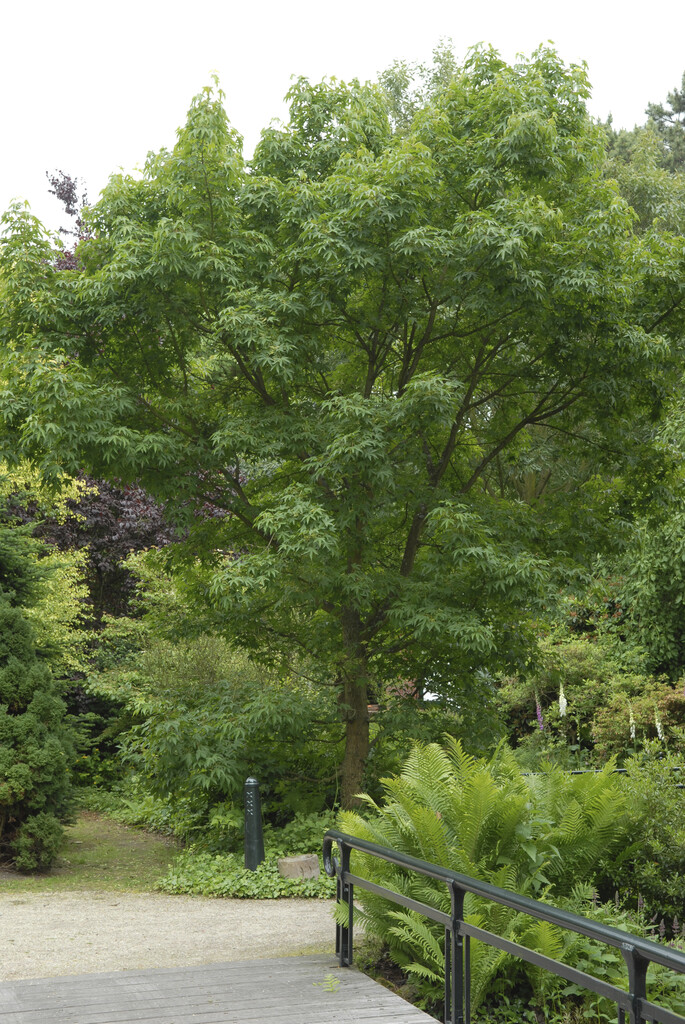Acer miyabei
Miyabei maple
A deciduous tree, up to 25m high, with green leaves to 15cm across, deeply cut into five bluntly toothed lobes, and held on long stalks that exude a milky sap when broken. Loose spikes of small yellow-green flowers are produced in spring, followed by winged fruits. Leaves turn yellow in autumn
Size
Ultimate height
Higher than 12 metresTime to ultimate height
20–50 yearsUltimate spread
Wider than 8 metresGrowing conditions
Moisture
Moist but well–drainedpH
Acid, NeutralColour & scent
| Stem | Flower | Foliage | Fruit | |
| Spring | Yellow Green | Green | ||
|---|---|---|---|---|
| Summer | Green | |||
| Autumn | Green Yellow | |||
| Winter |
Position
- Full sun
- Partial shade
Aspect
East–facing or North–facing or South–facing or West–facing
Exposure
Exposed or Sheltered Hardiness
H6Botanical details
- Family
- Sapindaceae
- Native to GB / Ireland
- No
- Foliage
- Deciduous
- Habit
- Columnar upright
- Genus
Acer can be deciduous trees or large shrubs with paired, often palmately-lobed leaves and small flowers followed by characteristic winged fruits. Many have fine autumn colour, and some have ornamental stems
- Name status
Correct
- Plant range
- Japan
How to grow
Cultivation
Grow in moisture-retentive, well-drained, lime-free soil in sun or part shade. Dislikes dry soils and long periods of drought
Propagation
Propagate by seed in autumn or spring, or by softwood cuttings in summer
Suggested planting locations and garden types
- Architectural
- Low Maintenance
Pruning
Minimal pruning required; see pruning group 1. Prune from late autumn to mid-winter only
Pests
May be susceptible to Acer gall mite, aphids, caterpillars and horse chestnut scale
Diseases
May be susceptible to Verticillium wilt, Acer leaf scorch and honey fungus
Get involved
The RHS is the UK’s gardening charity, helping people and plants to grow - nurturing a healthier, happier world, one person and one plant at a time.
